To celebrate Women's History Month, Special Collections is highlighting a few of the women who shaped Boston Public Library. We will be holding an open house celebrating women's contributions to our library on March 26, 2024.
The North End Branch of the Boston Public Library, a beloved neighborhood institution, was strongly shaped by the work of one woman, Edith Guerrier.
Guerrier (1870-1958) was born in New Bedford, Massachusetts to George and Emma Guerrier, who died when Edith was three. Her father, who was a poet and former Union soldier, struggled to find steady employment. Consequently, she spent her childhood shuttling between her wealthy aunt and uncle, Anna and Walton Ricketson, and the family of her great uncle Samuel Fox, a Methodist minister.
Edith Guerrier’s childhood informed her service-oriented and progressive world view. She was familiar with influential figures such as Henry David Thoreau, Ralph Waldo Emerson and met Louisa May Alcott through her aunt and uncle. Moreover, her uncle Fox’s ministerial work left a deep impression on her. When she was thirteen, she moved to Kansas with her father for a few years before returning in 1887 to attend the Vermont Methodist Seminary and Female College in Montpelier.
After graduating in 1891, she enrolled in the Museum School of the Museum of Fine Arts in Boston. There she met her life-long partner: the artist Edith Brown (1872-1932). Faced with both an ailing father and the realization that she was not much of an artist, Guerrier quickly left school to make a living. With the help of influential family friends, Guerrier was hired by Pauline Agassiz Shaw (1841-1917), the founder of the North Bennett Street Industrial School in the North End, and soon began working in one of the most densely populated immigrant neighborhoods of Boston.
When Guerrier began working in the North End, the neighborhood was transitioning from a largely Irish immigrant population to Jewish and Italian immigrants. Between 1892 and 1905, Guerrier offered services to meet the need of this changing population. She worked in the nursery of the North Bennett Street Industrial School, led five clubs for young girls, and ran a reading room for girls. She moved in with her partner Edith Brown, who began teaching art classes at the school. As the popularity of Guerrier’s reading room grew, she stopped leading clubs in order to focus more of her energy on the reading room.
In 1899, the reading room became a deposit station of the Boston Public Library, and Guerrier was hired as the Custodian, which today would be a managerial position. At the same time, a group of girls began attending Guerrier’s story hour every Saturday night at seven o’clock and eventually organized themselves into the Saturday Evening Girls with a president, vice-president, secretary, and treasurer. Guerrier designed these story hours to meet the intellectual needs of these girls by holding activities that included cultural and social programs and discussions of current issues. Guerrier and her partner Brown even wrote and illustrated a storybook of their own: Wanderfolk in Wonderland. In 1905, the deposit station grew into the Industrial School’s Reading Room and to which she was named Custodian.
As if a reading room and Saturday Evening Girls programs were not enough, in 1906 Guerrier and Brown were inspired by the unique pottery they saw during a trip to Europe and realized the potential for the Saturday Evening Girls to make extra income by making their own pottery. When they returned home, they sought out local artisans to teach them all aspects of the craft. In 1908, with the financial help of the philanthropist Helen Storrow (1864-1944), Paul Revere Pottery was founded with Edith Brown as its director and principal artist. The women began selling the pottery out of their Hull Street Studio in the North End in 1909 then moved to the Aberdeen section of Brighton in 1915 where they continued to make and sell their pottery until 1942.
In February 1913, the North End Branch of the Boston Public Library opened. Guerrier, a member of the North End Improvement Association and the Women’s Municipal League, worked with a small group of people who were interested in only one thing for the neighborhood: a public library. When it was their turn to bring their request to Mayor John F. Fitzgerald, Guerrier was so convincing that the branch opened within a year and she became the Custodian. She brought the programs established with the Saturday Evening Girls with her to this new library. From 1912-1917, with the assistance of Fanny Goldstein (1895-1961), who began her library career with Guerrier, the Saturday Evening Girls began publishing the S.E.G. News, which ran until 1917 and reported on the club’s activities, information about the North End, editorials, and original pieces.
As the United States entered World War I in 1917, Guerrier took a leave of absence from the library to volunteer for the National Food Administration. Because Guerrier believed that libraries could and should play a larger role in American society, she led an effort to provide government information to public libraries throughout the country, traveled throughout the United States to meet librarians, and wrote a bill (which did not pass) calling for a library information service in the Department of Education.
While Guerrier was on leave, she was named the Librarian of the North End Branch; upon her return in 1919, she was promoted to the position of Supervisor of Circulation. According to the Annual Report of 1920-21, the position, “broadly interpreted, offers, through various means, the opportunity of bringing together the book and the reader.” Guerrier was again promoted in 1922 to the Supervisor of Branches and retired from that position in 1941.
Guerrier modeled how to truly embed in a neighborhood and meet the needs of a community. Among the many contributions she made to the library profession was to encourage librarians to rethink their more traditional role of book collectors and move toward more modern roles in readers’ advisory and to be active promoters of reading as a way to change lives. In a fitting tribute, Guerrier’s eightieth birthday coincided with the fifty-first anniversary of the Saturday Evening Girl’s clubs. Members from all over gathered to remember the girls they were, celebrate the women they became, and reflect on how much Guerrier and her programs shaped their lives.

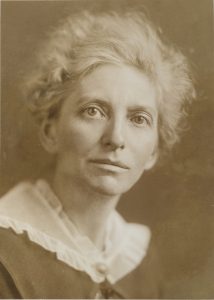
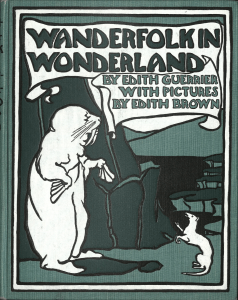
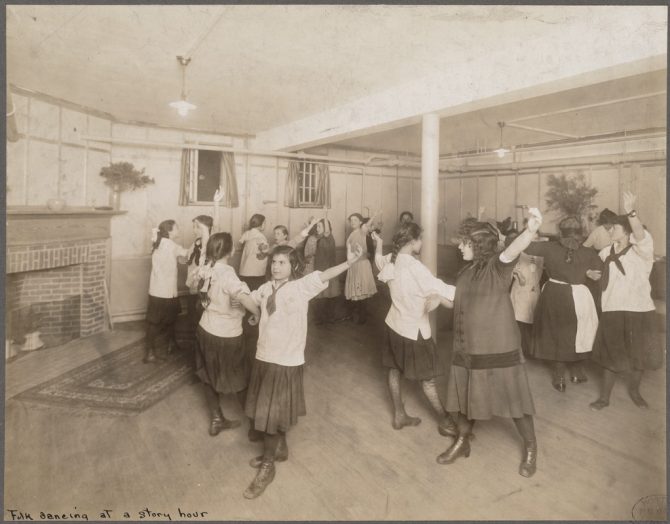
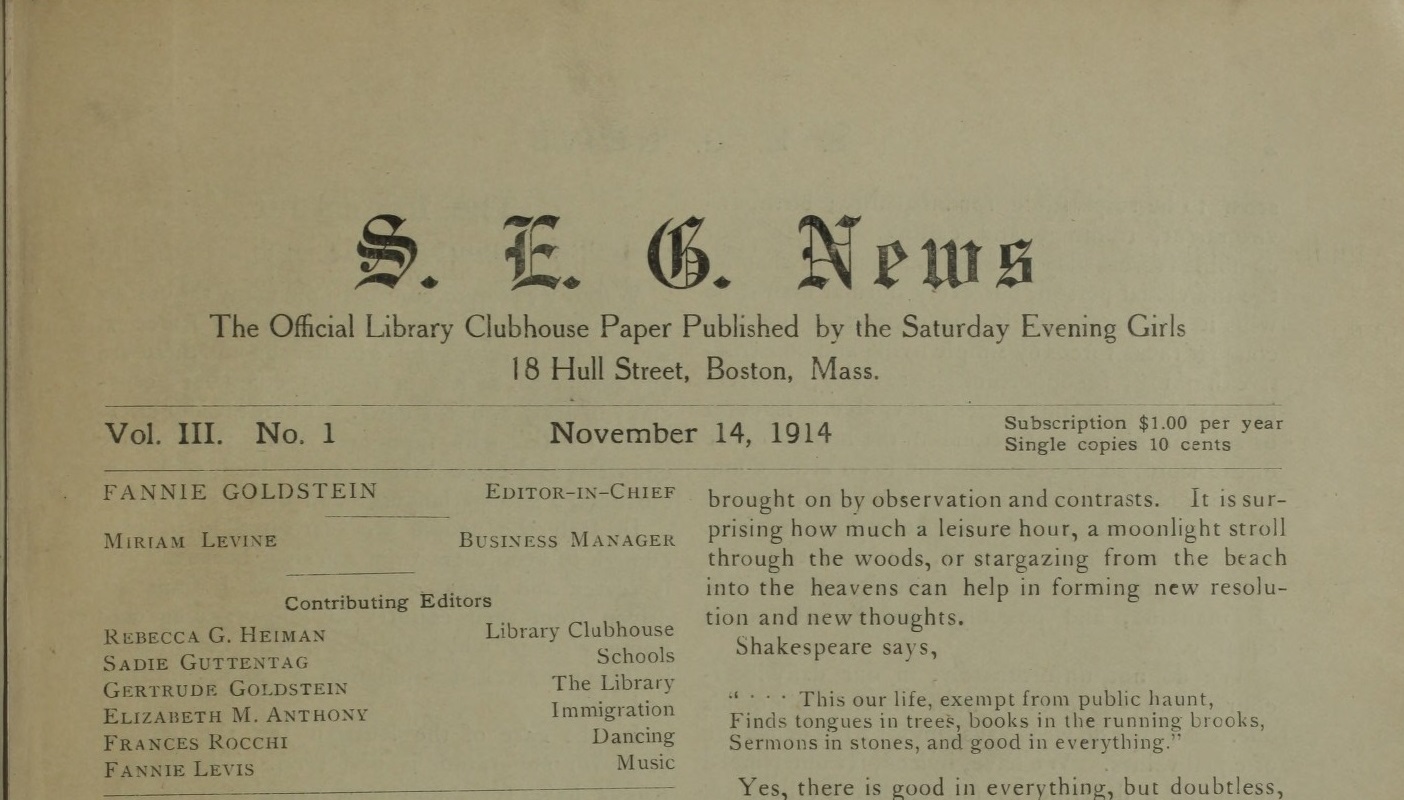
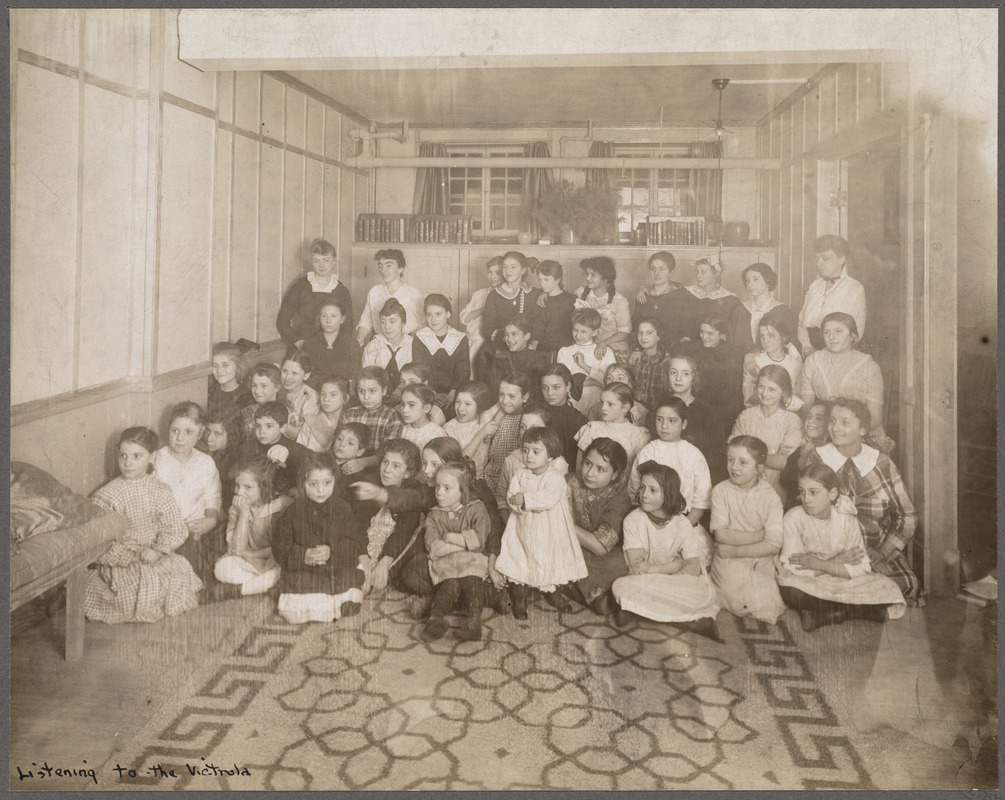
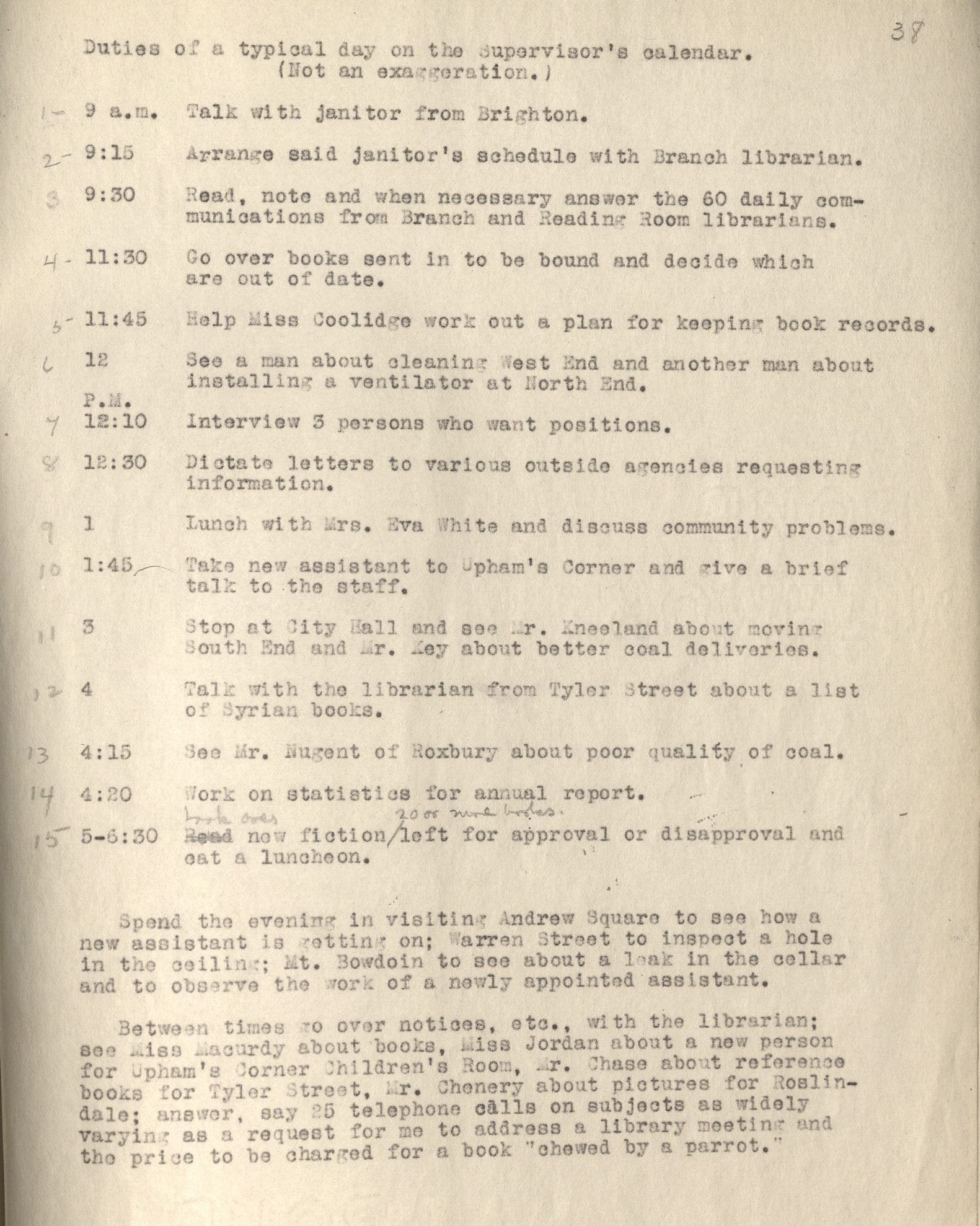

Add a comment to: Women Who Shaped BPL: Edith Guerrier, Librarian, Mentor and Visionary